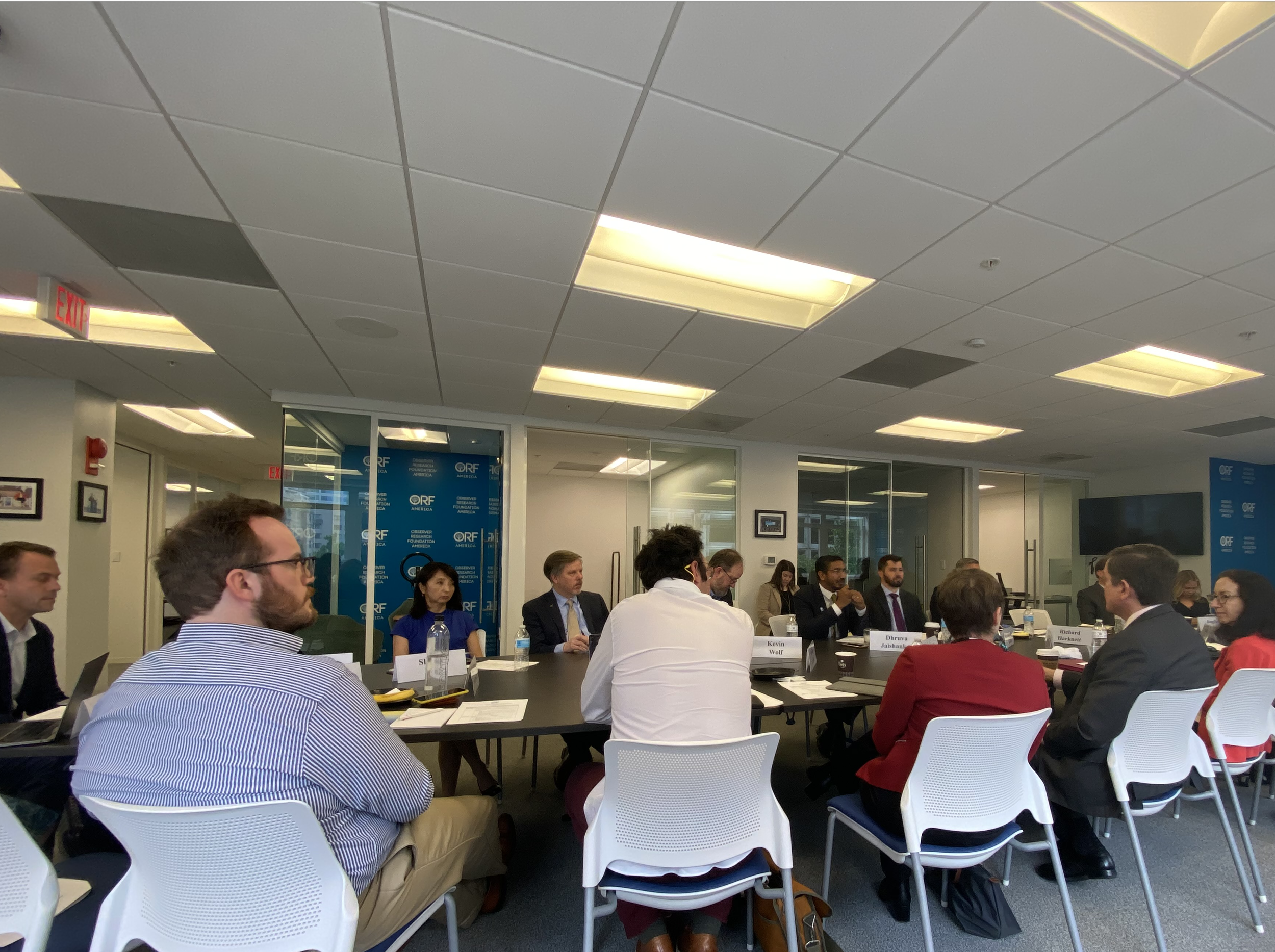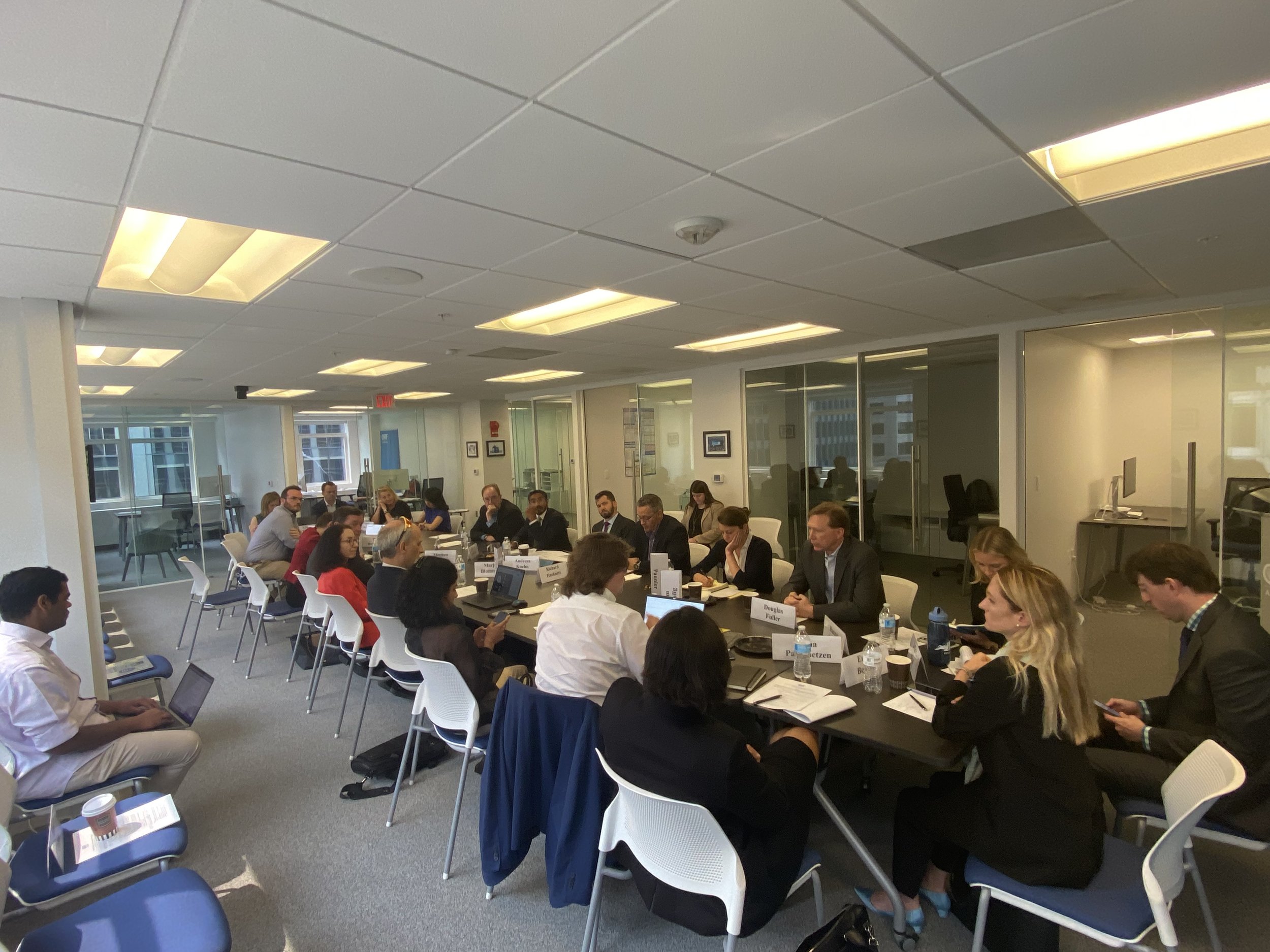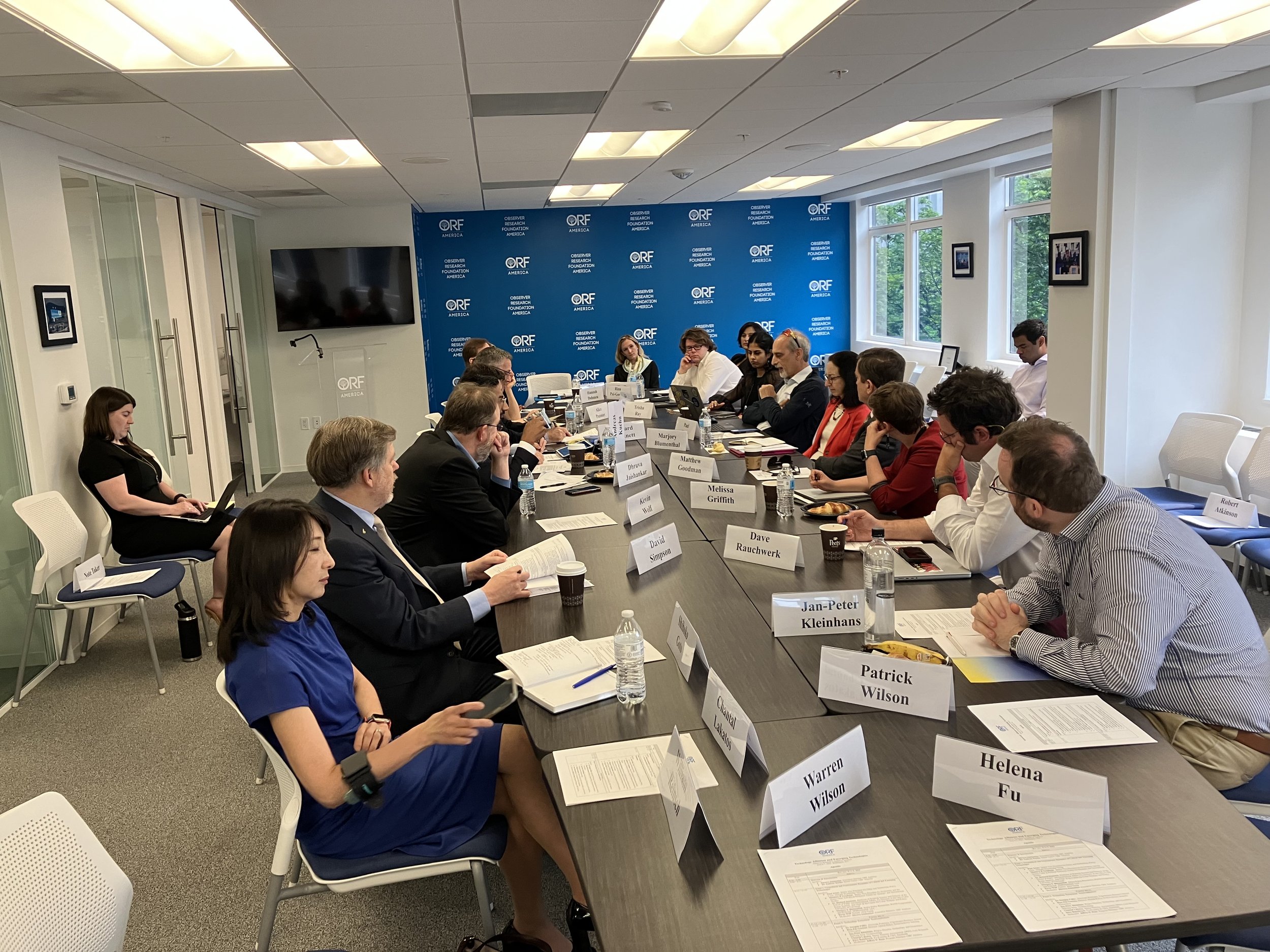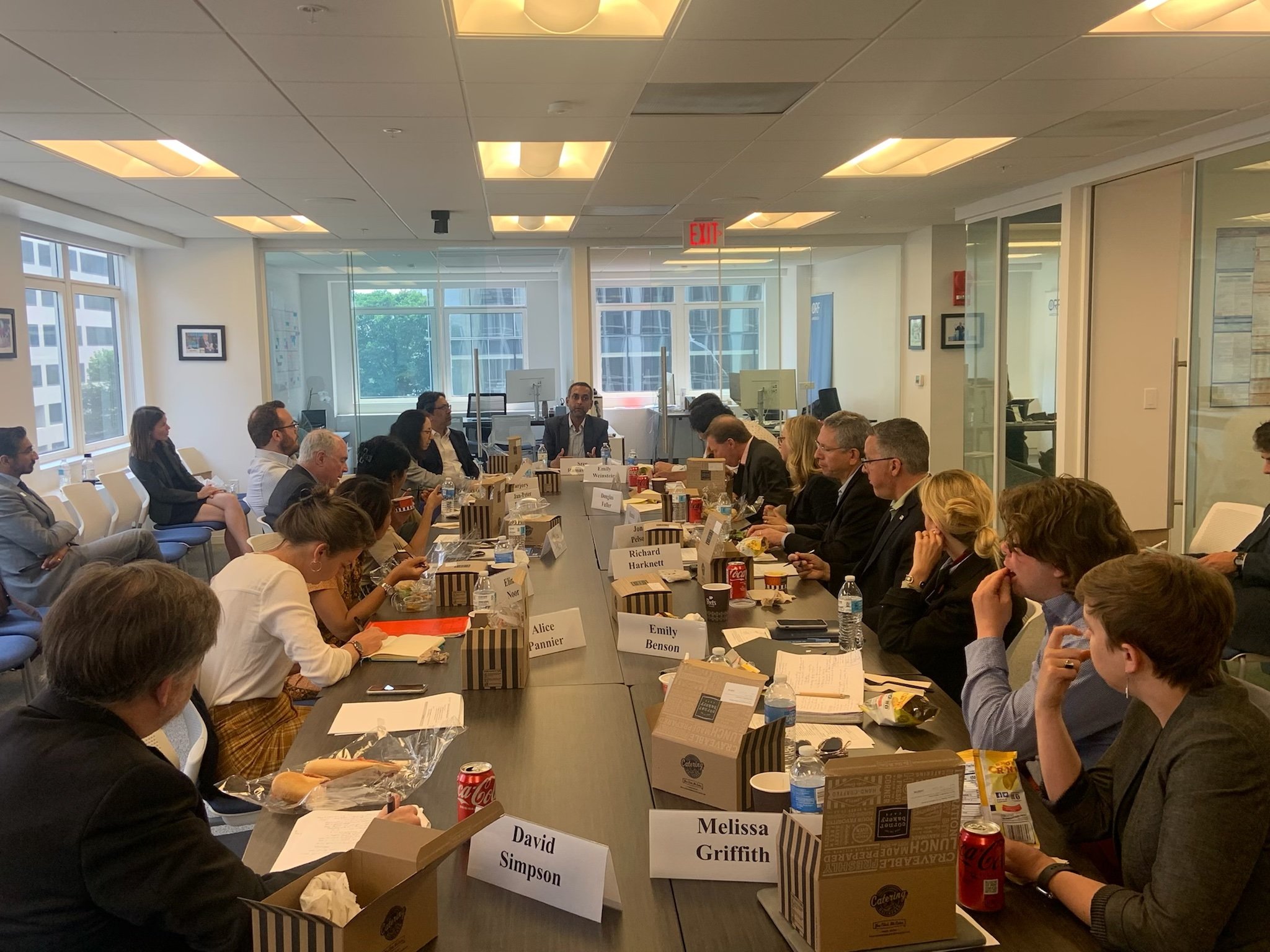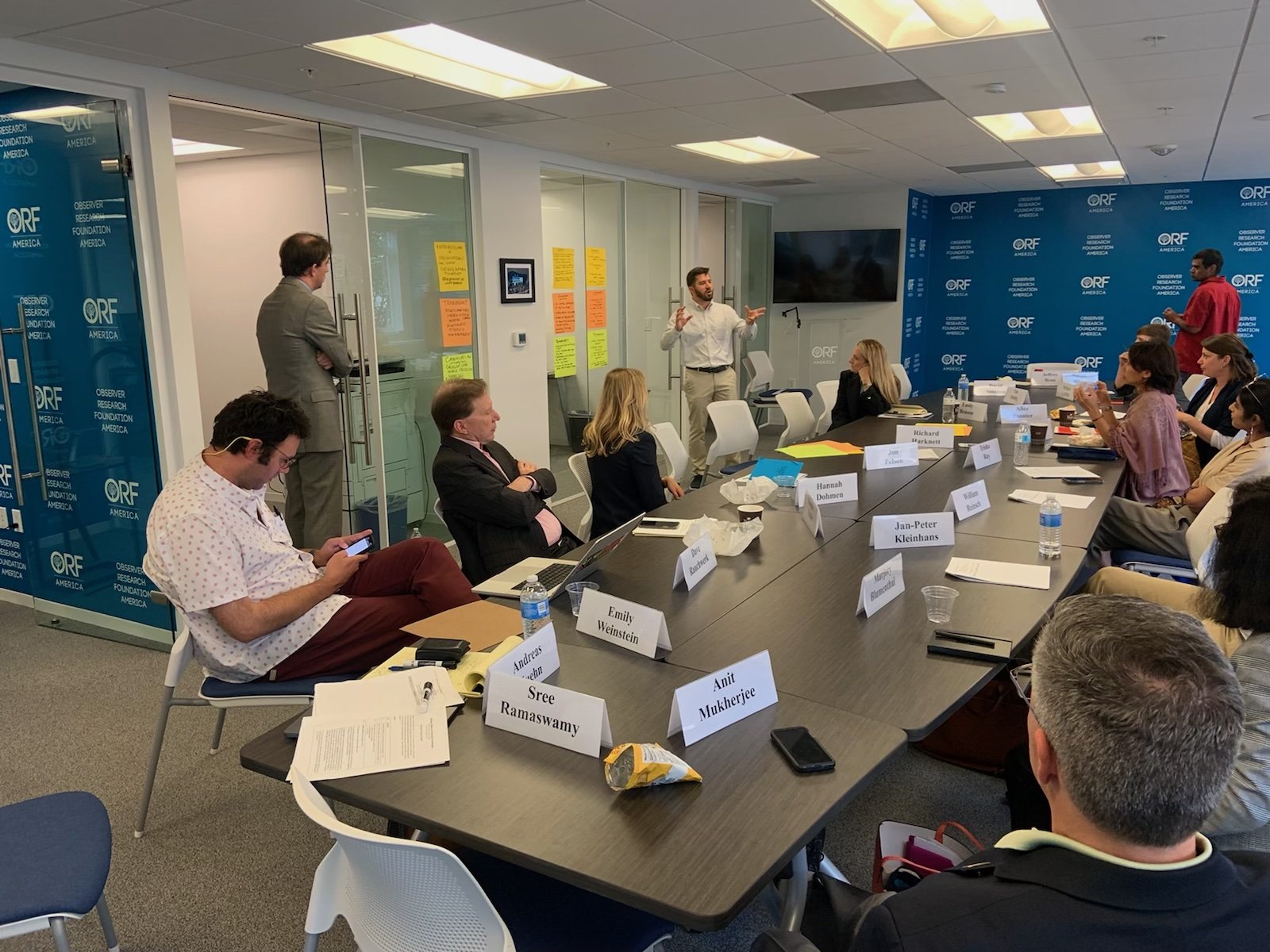On June 6-7, 2023, ORF America, hosted a closed-door, in-person workshop on Technology Alliances and Emerging Technologies in Washington, DC.
The two-day workshop brought together over 30 policy and technology experts from the United States and abroad to better understand the dynamics of technology alliances and critical and emerging technologies against the backdrop of geopolitical tensions.
Led by ORF America Senior Fellow Dr. Andreas Kuehn, the workshop convened leading experts from industry, think tanks, academia, and government from Denmark, France, Germany, India, and the United States to discuss how the United States and like-minded, democratic countries can effectively cooperate on critical and emerging technologies to manage technology competition with adversaries, while balancing national security and economic interests. Ms. Helena Fu, with the National Security Council, and Mr. Sree Ramaswamy, with the U.S. Department of Commerce, made keynote remarks.
Key issues that the workshop covered included geopolitical and geoeconomic competition, the semiconductor and 5G technological ecosystems, the roles and trajectories of multilateral and minilateral arrangements to manage technology, as well as unilateral and joint measures to protect and promote technology supply chains, innovation, investments, and collaboration.
Particular attention was given to identifying policy issues of concern and challenges that the U.S. government and its partners face both domestically and internationally. This included, among others, the need to foster engagement of industry in the Quad, the TTC, iCET, and other technology alliances to drive joint activities and collaboration at scale, as well as to mitigate potential negative effects of government interventions, such as high tech export controls on industry competitiveness. While the discussion illustrated complicated relations and multifaceted economic and security interests between the United States and its partners, most experts agreed that concerted efforts among like-minded states are needed to navigate the geopolitical competition and secure science and technology leadership in the long run.
A summary of the workshop’s key findings will be made available at a later date.
